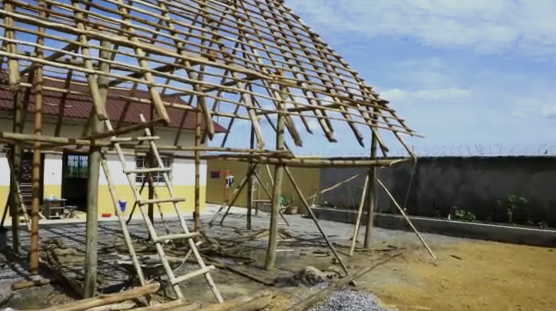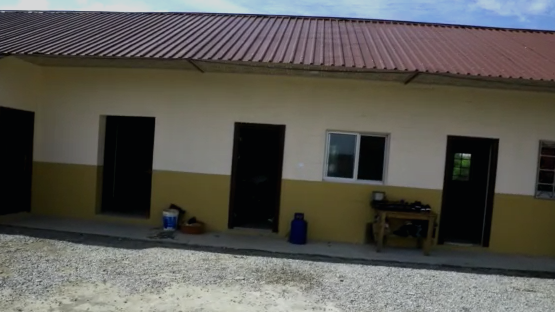By David Serumaga | Driving on the Kampala-Mpigi Highway, one will be attracted by the green cover along the road. As the journey continues, a war against environmental growth is witnessed by a fleet of trucks carrying white sand and construction of permanent buildings in Lwera Wetlands.
I am aware that the responsible agencies on the environment have been able to clear some companies to participate in the sand mining business. However, the same agencies like the Environmental Police have gone silent on the rising cases of misuse and encroachment of wetlands and other sensitive environmental areas.
Companies like Double Q should be cross-checked on their operations in the wetlands because they defied the guidelines and went ahead to construct a permanent structure behind their temporary containers. In actual sense, once someone or a company disobeys the environmental regulations, its permit is supposed to be automatically revoked. Surprisingly, companies which have violated the environmental guidelines have continued to operate as if relevant organs are not watching.
Wetlands are a habitat for many species of fish and wildlife, including migratory birds, endangered species, commercially and recreationally finfish, shellfish, and many species of wild plants. Generally speaking, wetlands regulate water flows, store water and buffer the effects of storms; filter and help to purify water and provide essential habitat for flora and fauna.
They also act as the natural regulators of water flows, flood control, slowing and retaining water during periods of high runoff. This buffers the impact of storms and reduces shoreline erosion, thereby protecting against the loss of life and property. By holding water and releasing it slowly, wetlands help to recharge groundwater supplies and offset the effects of drought. Moreover, through processes not fully understood, wetlands can moderate local temperature and precipitation.


By and large, the construction of permanent buildings in wetlands is affecting our ecosystem in many ways. A casual observation of some projects in Lwera, Mpigi-Kalungu Districts reveals a massive destruction of Wetlands largely resulting from effects of illegal sand mining and construction of permanent structures. The Lwera wetlands were initially areas of grazing and fishing as well as sources of water for domestic use. It now appears that due to the settlement of illegal sand drillers, the public’s perception on these traditional uses of wetlands has shifted.
Individuals and companies that have violated the environmental regulations have rendered wetlands to be truly threatened landscapes and ecosystems. Wetlands need to be appreciated and conserved for their traditionally perceived values and hydrological- physical, biological and socio-economic functions.
The Environmental Police should come out and explain why it did not confiscate materials of some companies which are misusing our wetlands by constructing permanent buildings in these areas. We need an explanation on the activities of Kamaliba Community, Katabazi and Double Q in regards to environmental protection and destruction. Relevant agencies can issue permits to competent companies but be keen on how they use these wetlands.
If the environmental guidelines are not observed, we shall see wetlands coming to us in the form of moving islands, floods and animals which stay in these wetlands will visit us in our homes or gardens. I will continue to remind the general public that wetlands should be protected because they produce numerous benefits for society. Benefits which are either irreplaceable if lost or can only be replaced at an immense expense.
By David Serumaga is a Concerned Citizen and an Environmentalist in Uganda













































Discussion about this post